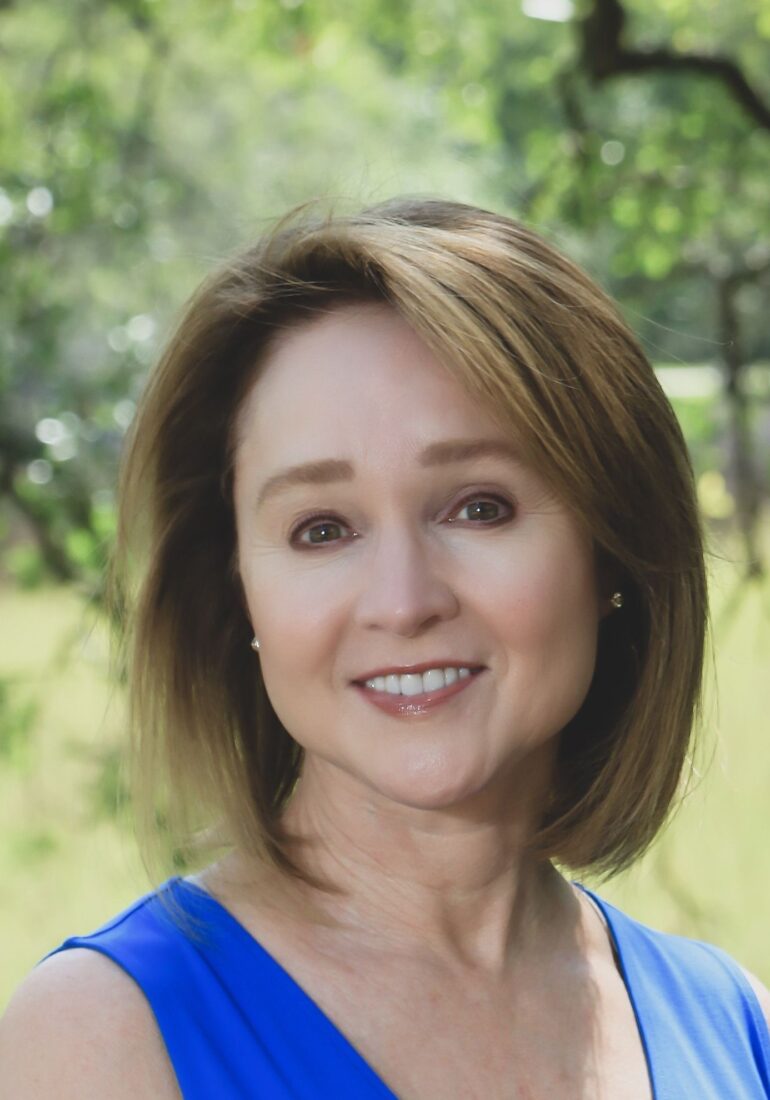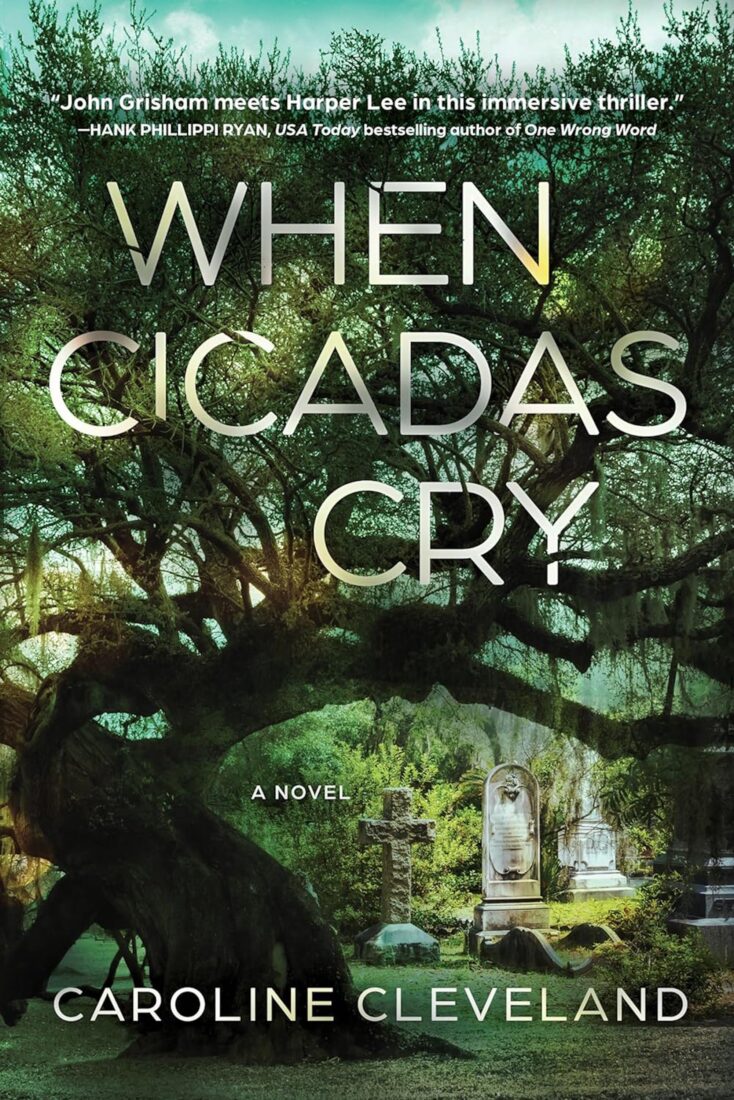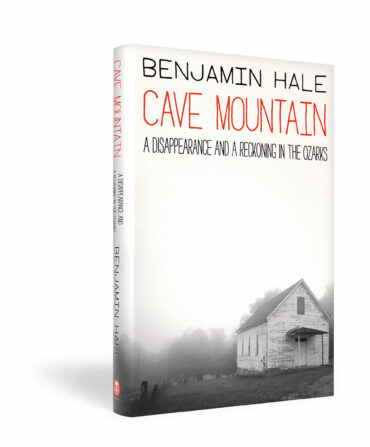
The South Carolina Lowcountry is no stranger to true crime headlines. In the past decade, news crews have frequently parachuted into its packed courtrooms. Most recently the small town of Walterboro captivated the country when the head of a local legal dynasty was accused of double murder. Like a John Grisham novel come to life, the story immediately became a hitmaker for podcasters and filmmakers. So you might think that the first novel of Charleston attorney and Walterboro native Caroline Cleveland, the classic whodunit When Cicadas Cry, might be inspired by the region’s most recent grisly affairs. But it was an earlier painful incident that got her writing.
“I live about three blocks from Mother Emanuel Church,” says Cleveland, referring to the site of a 2015 hate crime in which nine Black parishioners were murdered. “I practice in the federal and state courts, where that trial was. I’ve actually used Jim Ballenger, who did the court evaluation on [perpetrator] Dylann Roof, as an expert for my writing. I mean, it was just there. There was no turning away from it.”

“It,” of course, was the inescapable impact of racism. When Cicadas Cry follows the fictional high-profile murder of a white woman found bludgeoned to death with a wooden cross inside a Walterboro church. The main suspect is Sam Jenkins, a Black man. He was the only one at the scene of the crime, found covered in blood after calling the cops. He claims he’s innocent but his alibi is iffy. It’s not until Charleston attorney Zach Stander and his girlfriend, detective Addie Stone, get involved, that we discover this crime goes deeper than one unholy night. It cuts all the way back to a thirty-four-year-old cold case and the murders of two young women on Edisto Beach whose killer has never been found.
A successful employment attorney who has worked in Charleston for thirty-three years, Cleveland didn’t expect to pivot to fiction. But her itch to tell stories, some of them rooted in things she’s witnessed herself, wouldn’t go unscratched.
“The stories just come, I don’t go looking for them. They just show up. And sometimes they just bang on the inside of my head wanting out,” she says. She thinks that has something to do with her surroundings.
“In the South, our idiosyncrasies are contradictions themselves. Religion is a big part of it. You go to New York and the churches don’t have people in them. Come down here and there are butts pew to pew. Poverty is another big piece of it because desperate people will do desperate things,” Cleveland says. “Then you have racism. You can’t make up an evil worse than that. No society that lets it be okay for one human being to own another human being is going to be able to do that and not suffer the consequences for centuries. But then there’s the juxtaposition of the natural beauty here. Add in family dynamics and Southern manners, and you discover that often hospitality is used as a cloak.”
Cleveland weaves all of these elements—the good old boys, the Spanish moss, the quirky beach dwellers, the faux-friendly neighbors, and the small-town preachers—into her murder mystery in a way that will have many Lowcountry readers mumbling, “Oh I know that place.”
Given her years of practicing in the state, one can imagine this won’t be the last story to come from the legal mind of Caroline Cleveland. She has thirty-plus years of experience in boardrooms and courtrooms to pull from—whole file folders of legal inspiration, plus some personal anecdotes.
Here’s one: “When I first got out of law school in the nineties, I opened my own shop on Broad Street, then I decided to move closer to my now-husband, who was in Greenville,” she says. “I got an interview with a firm in this small town nearby. I walked into this dark, windowless room, with a long table and all of these old white men at the other end and me, one hundred pounds soaking wet at the other. It gets really quiet and one of them finally says, ‘Well, if we were to hire you, where would you go to the bathroom?’”
The question went right over Cleveland’s head. “I didn’t realize that the firm operated with only two restrooms. But they didn’t say men and women. They said, lawyers and staff. They’d never hired a female attorney before.
“So I looked at them and said, ‘Don’t worry. I’m housebroken.’”
She didn’t get the job. Then again, great potential copy is its own reward.
When Cicadas Cry comes out May 7, 2024. Caroline Cleveland will be signing copies on Sunday, May 12, at Buxton Books (160 King Street) in Charleston from 1–3 p.m.
Kinsey Gidick is a freelance writer based in Central Virginia. She previously served as editor in chief of Charleston City Paper in Charleston, South Carolina, and has been published in the New York Times, the Washington Post, Travel + Leisure, BBC, Atlas Obscura, and Anthony Bourdain’s Explore Parts Unknown, among others. When not writing, she spends her time traveling with her son and husband. Read her work at kinseygidick.com.
Garden & Gun has an affiliate partnership with Bookshop.org and may receive a portion of sales when a reader clicks to buy a book. All books are independently selected by the G&G editorial team.








